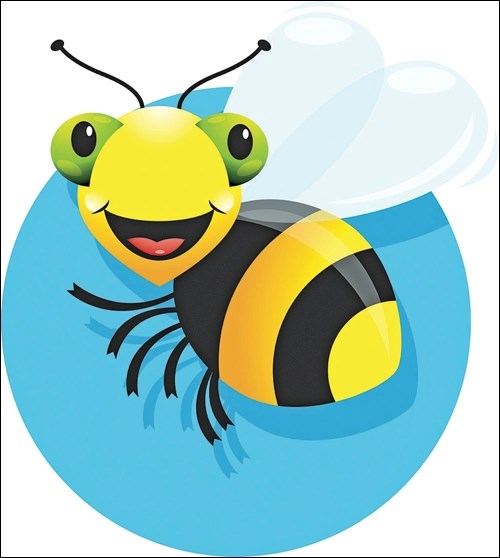Believe and Achieve — that's the theme for the first ever First Nations Provincial Spelling Bee to be hosted by Chief Poundmaker School this spring.
The FNPSB will be held at the Don Ross Centre in North Battleford Friday, April 8. Finalists will qualify for a national spelling bee, presented by Spelling Bee of Canada in Toronto, Ont. Sunday, May 15.
Organizer Pauline Favel, a student support worker, is excited that Spelling Bee of Canada has endorsed the FNPSB as a regional competition. Nine winners will be recognized locally and the first place winners from the bee's three categories will advance to the national spelling bee as Saskatchewan’s only representative.
"This is a first ever for native people," says Favel. "Not just for Saskatchewan but all the provinces. We are taking a team from First Nation schools, all the winners are going to be First Nation students, and we're taking them to Toronto to compete with everybody else."
Favel says the FNPSB is an exciting initiative that promotes literacy, study skills, public speaking skills and healthy competition. The decision to participate empowers students to challenge themselves to be the best they can be.
It's another way to approach literacy, says Favel.
"It's not just spelling," she explains. "There are so many benefits to learning new words, expanding your vocabulary, the opportunity to public speak, the opportunity to travel. Some people probably haven't even been to North Battleford, never mind the opportunity to go to Toronto."
Favel says the initiative will showcase the talents of First Nation youth, their abilities and their strengths and the work First Nation schools are doing to improve literacy among their students.
"It's a benefit for all," she says.
Approximately 140 students have already registered, representing all the tribal councils of Saskatchewan plus independent First Nations, says Favel. Students are coming from as far north as Dillon on Peter Pond Lake. Eighteen schools of the approximately 72 eligible schools are represented.
"We are quite excited about it," she says. "It's been a labour of love."
Favel has seen the positive results a spelling bee can have on student achievement and engagement. Working in the File Hills area several years ago, she was involved at the school level in bringing the participants together, giving them the word lists and helping them study.
"I saw the excitement," she says.
When she came back to the Poundmaker First Nation area, she offered to co-ordinate a spelling bee at the school, inviting other tribal council schools. The following year another was held and it was moved to the Don Ross Centre in North Battleford.
This year, she and fellow organizers wanted to open it up to a provincial level, with the goal of going to nationals. With no provincial spelling bee in place since the demise of Canspell, they have found sanction with Spelling Bee of Canada, a not-for-profit grassroots organization established in the greater Toronto area in 1987.
It was decided the FNPSB bee would be open to First Nation students who attend federal schools, that is schools located on First Nations, funded through the federal government.
While there was interest from First Nation students who attend provincially-funded schools, as well as from non-First Nation students, they had to be turned down, at least for the first year.
"We didn't want to open that door this year because it's our first ever and we couldn't anticipate [response]. We'd be overwhelmed if we had another 100 or 200 kids who wanted to attend," says Favel.
They could possibly expand in the future, perhaps to métis students or First Nation students from provincial schools in the Battlefords – or further.
The interest certainly is there, she says.
To get the word out to all the First Nation schools, Favel contacted all the province's tribal councils in the fall and the Federation of Saskatchewan Indian Nations help with faxing and emailing all their members and independent First Nations.
To fit the criteria for sanction by Spelling Bee of Canada, there was also the task of writing letters to sponsors for cash and trophies.
"To be a regional spelling bee, we have to give out cash prizes and trophies and go with their words," says Favel. "When I was co-ordinating the tribal council [bee], we gave out certificates and those are not costly."
Nor did they offer a lunch, which they plan to do this year.
"The only cost we incurred last year when we moved it to North Battleford was rental for the facility for the day, but with Spelling Bee protocols and guidelines, our costs are almost triple this year."
Happily, Favel says, the Saskatchewan Indian Gaming Authority has become the title sponsor. They will also be assisting with the expenses of the national level competition, she says.
A number of other sponsors are also on board, both corporate and private, she says.
Each participant has a registration fee of $35, which goes to Spelling Bee of Canada. That organization provides an e-manual with all the words (there are 400) at primary, junior and intermediate levels. A CD with the proper pronunciation of the words is also available to help students study. They also provide a manual for the spelling bee officials.
Organizers have gone out of their way, says Favel, to make sure all participants, schools, parents and caregivers are well informed on how the event will be run and she expects the audience to be respectful of the competition process.
"I'm sure it’s going to be run quite smoothly," she says.
Looking to next year, she says, the contacts to continue are now in place.
"All I would have to do again next year is communicate again to them."
But this year will always be the first.
"It's a first ever," says Favel. "Maybe they will make a movie about it!"



